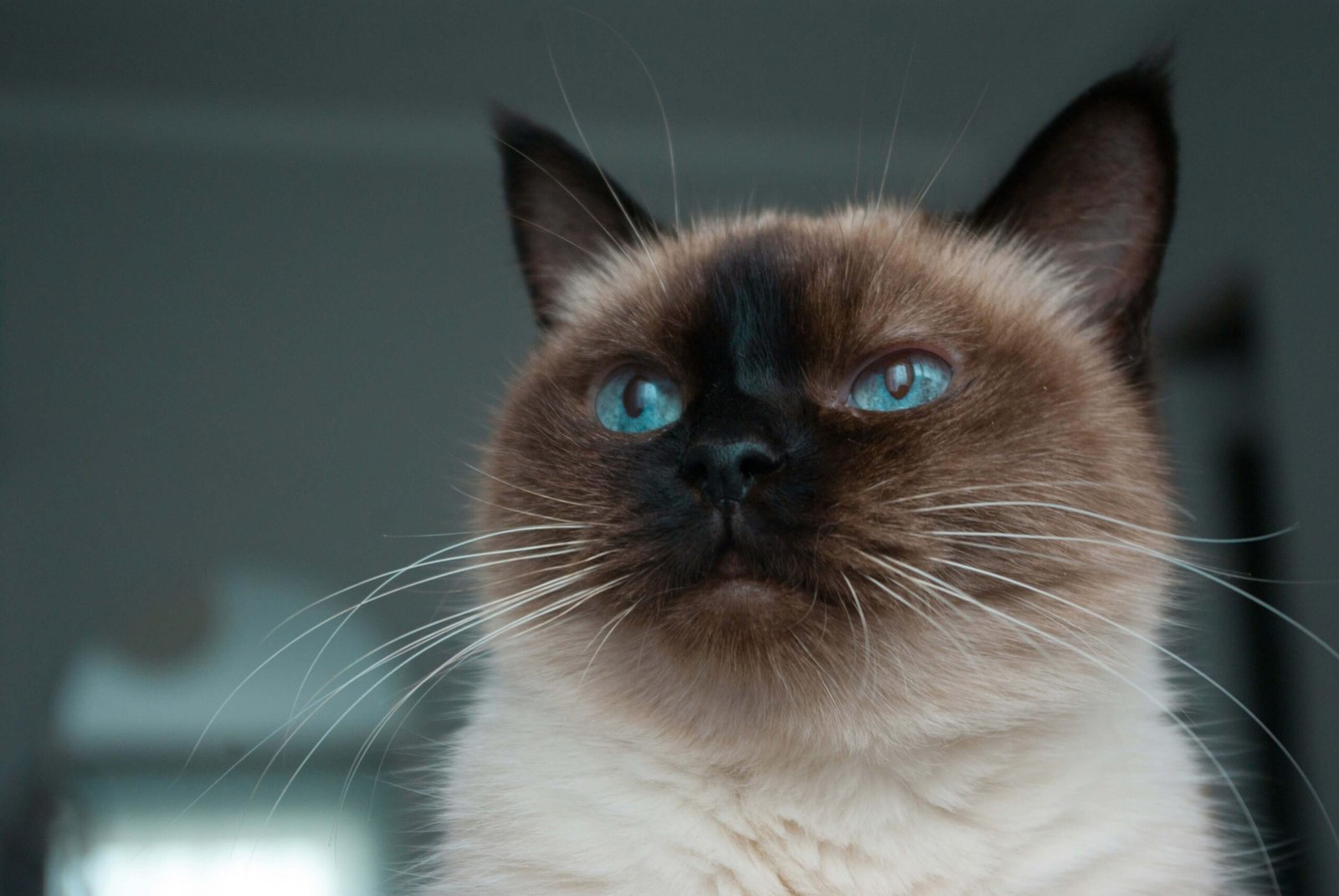Why Is My Cats Stomach Bloated and Hard? Understanding the Causes
As a cat owner, noticing changes in your furry friend’s body can be alarming. One of the most concerning symptoms is when your cat’s stomach appears bloated and feels hard to the touch. This could indicate a range of potential issues, some minor and others more serious. While occasional bloating might not always signal an emergency, understanding the underlying causes can help you act quickly if necessary. In this blog post, we’ll explore the possible reasons behind this condition, signs to watch out for, and steps you can take to ensure your cat’s well-being.
Common Causes of a Bloated and Hard Stomach in Cats
If your cat’s stomach is bloated and hard, it could stem from various factors. Below are some common causes that pet owners should be aware of:
Gas Build-Up
Just like humans, cats can experience gas due to dietary changes or swallowing air while eating too quickly.Constipation
A lack of bowel movement can lead to a swollen abdomen as waste accumulates in the digestive tract.Fluid Accumulation (Ascites)
Fluid buildup in the abdominal cavity may occur due to liver disease, heart problems, or other systemic conditions.Tumors or Growths
Abnormal masses within the abdomen can cause bloating and hardness, often requiring veterinary evaluation.Parasites
Intestinal worms or other parasites can disrupt digestion and lead to visible swelling in the stomach area.
Understanding these potential causes is crucial for determining whether your cat needs immediate medical attention. Always consult a vet if you’re unsure about the severity of the situation.
Signs That Accompany a Bloated Stomach in Cats
A bloated and hard stomach often comes with additional symptoms that can provide clues about what’s going on. Here are some signs to look out for:
Lethargy
If your cat seems unusually tired or reluctant to move, it could indicate discomfort or illness.Loss of Appetite
Cats with abdominal issues may refuse food or show disinterest in their favorite treats.Vomiting or Diarrhea
Digestive disturbances often accompany bloating and require careful monitoring.Difficulty Breathing
Swelling in the abdomen can press against the lungs, making breathing labored or irregular.Behavioral Changes
Hiding, aggression, or excessive vocalization might suggest pain or distress.
Recognizing these accompanying signs can help you better communicate with your veterinarian and expedite diagnosis and treatment. Remember, early intervention is key to resolving health concerns effectively.
Check this guide 👉Cat Constipation Home Remedies: Best 7 Expert Tips!
Check this guide 👉Understanding Cat Constipation: Best 7 Health Tips!
Check this guide 👉Cat Food for Constipation: Best 7 Expert Tips!

Possible Causes of Bloating | Steps You Can Take |
|---|---|
Gas Build-Up | Feed smaller meals more frequently |
Constipation | Increase fiber intake gradually |
Fluid Accumulation (Ascites) | Schedule an urgent vet appointment |
Tumors or Growths | Request imaging tests like X-rays |
Parasites | Administer deworming medication |
When to Seek Immediate Veterinary Care
While some cases of bloating may resolve on their own, others demand prompt professional intervention. Here are scenarios where seeking veterinary care is essential:
Sudden Onset of Symptoms
If the bloating appears suddenly and worsens rapidly, it could signify a critical issue.Painful Reaction to Touch
If your cat reacts negatively or cries out when you touch its abdomen, it likely indicates pain.Pale Gums or Weakness
These symptoms could point to internal bleeding or shock, both of which require urgent care.Fever or Elevated Temperature
A fever alongside bloating suggests infection or inflammation needing medical treatment.Unexplained Weight Loss
Significant weight loss combined with bloating could hint at chronic illnesses such as cancer.
Being vigilant about these warning signs ensures your cat receives timely care, potentially saving its life.
Preventive Measures to Avoid Bloating in Cats
Prevention is always better than cure, especially when it comes to your cat’s health. By taking proactive steps, you can minimize the risk of bloating and related complications:
Maintain a Balanced Diet
Ensure your cat eats high-quality food tailored to its age, size, and activity level.Monitor Eating Habits
Discourage rapid eating by using slow-feed bowls or dividing meals into smaller portions.Regular Deworming
Keep up with routine parasite prevention treatments recommended by your vet.Provide Plenty of Water
Hydration supports healthy digestion and prevents constipation.Schedule Routine Check-Ups
Annual vet visits allow for early detection of underlying health issues before they escalate.
By incorporating these habits into your daily routine, you can significantly reduce the likelihood of encountering severe bloating episodes in your cat.
Dietary Factors Contributing to Bloating
Diet plays a significant role in your cat’s digestive health, and certain foods or feeding habits can contribute to bloating. Understanding how diet impacts your cat’s stomach can help you make informed decisions about their nutrition.
Feeding Low-Quality Food
Cheap or low-quality cat food may contain fillers that are difficult for cats to digest, leading to gas and bloating.Sudden Diet Changes
Switching your cat’s food abruptly can upset their stomach and cause digestive issues like bloating.Overfeeding
Giving your cat too much food at once can overwhelm their digestive system, resulting in discomfort and swelling.Lactose Intolerance
Many cats are lactose intolerant, and consuming dairy products can lead to gas and bloating.Food Allergies
Some cats may develop allergies to specific ingredients, causing inflammation and bloating as a side effect.
By paying attention to your cat’s diet and making necessary adjustments, you can reduce the risk of bloating and promote better overall health. Always introduce dietary changes gradually and consult your vet for tailored advice.
Environmental Factors That May Cause Stress-Related Bloating
Cats are sensitive creatures, and their environment can significantly impact their physical and emotional well-being. Stress-related bloating is not uncommon and often stems from external factors.
Changes in Routine
Moving furniture, introducing new pets, or altering daily schedules can stress your cat and affect digestion.Loud Noises
Sudden loud sounds like thunderstorms or construction work can frighten your cat and disrupt their digestive system.Lack of Safe Spaces
Cats need quiet, secure areas to retreat to; without them, they may feel anxious and develop bloating.Overcrowded Living Spaces
Too many cats or humans in a small area can overwhelm your feline friend and lead to stress-induced symptoms.Travel Anxiety
Car rides or visits to the vet can be highly stressful for cats, sometimes resulting in temporary bloating.
Creating a calm and predictable environment for your cat can go a long way in preventing stress-related bloating. Providing enrichment, maintaining routines, and offering safe spaces can help keep your cat relaxed and healthy.
Signs Your Cat Might Be Experiencing Pain Alongside Bloating
Bloating is often accompanied by signs of pain, which can indicate an underlying issue requiring immediate attention. Recognizing these signs can help you determine whether your cat needs urgent veterinary care.
Hunched Posture
A cat that remains hunched over with its abdomen tucked in may be trying to relieve abdominal discomfort.Excessive Grooming
Over-grooming the abdominal area could signify irritation or pain in that region.Reluctance to Jump or Move
If your cat avoids jumping onto surfaces or moving around, it might be experiencing pain.Aggression When Touched
A normally friendly cat that growls or bites when touched near the stomach is likely in distress.Restlessness or Pacing
Cats in pain may exhibit restless behavior, pacing back and forth instead of settling down.
These signs should never be ignored, as they often point to serious conditions. If your cat displays any of these behaviors alongside bloating, seek veterinary assistance promptly to ensure their comfort and safety.
Frequently Asked Questions About Bloated Cat Stomachs
Is a bloated stomach always dangerous?
Not necessarily, but persistent or severe bloating should always be evaluated by a vet.
Can stress cause my cat’s stomach to bloat?
Stress can indirectly affect digestion, leading to temporary bloating.
How do I know if my cat has worms?
Look for symptoms like vomiting, diarrhea, or visible worms in feces.
Should I withhold food if my cat’s stomach is bloated?
No, continue feeding unless advised otherwise by a veterinarian.
What should I do if my cat’s bloating doesn’t go away?
Contact your vet immediately for a thorough examination.
Final Thoughts: Prioritizing Your Cat’s Health
A bloated and hard stomach in cats can stem from various causes, ranging from mild to life-threatening. As a responsible pet owner, staying informed and observant is vital to ensuring your cat remains happy and healthy. Whether it’s adjusting their diet, scheduling regular vet check-ups, or acting swiftly during emergencies, every step counts toward safeguarding their well-being. Remember, your feline companion relies on you to notice subtle changes and advocate for their health. With proper care and attention, you can address bloating promptly and enjoy many joyful years together.
Do Cats Have Taste Buds? Best 7 Expert Tips! – Discover how cats experience flavors and why their taste is so unique.
Do Dogs Have Taste Buds? Best 7 Expert Tips! – Discover how dogs experience taste, their preferences, and what it means for their diet and health.
Can Cats Taste Sweet? Best 7 Expert Tips! – Discover why cats can’t taste sweetness, how it affects their diet, and tips to keep them healthy and happy.
Can Dogs Taste Sweet? Best 7 Expert Tips! – Discover how dogs perceive sweetness, which foods are safe, and tips to manage their sweet cravings responsibly.





